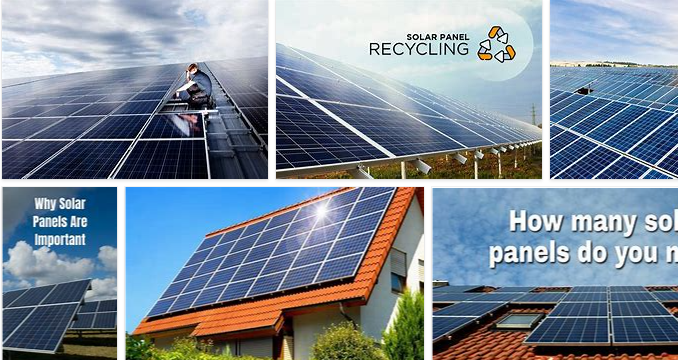☀️ Why Are Solar Panels Used? The Benefits of Solar Energy
Switching to solar energy is one of the most impactful decisions we can make for a cleaner, healthier, and more sustainable world. As solar technology continues to advance, it brings with it innovations that stimulate the economy, reduce climate change, and improve public health.
Even governments are now encouraging solar panel installations through incentives, tax credits, and new policies.
Here’s why solar panels are increasingly used around the globe:
🌞 1. Abundant Energy Supply
While the sun’s power may not be infinite, it’s still remarkably abundant. In fact, the sun produces enough energy in just one second to meet the Earth’s energy needs for two hours.
We simply need to continue developing the tools to capture and use it. Unlike fossil fuels such as coal, oil, and gas—which are being depleted and becoming more expensive—solar energy will last for at least another 5 billion years.
This makes solar panels one of the most accessible and long-lasting renewable energy sources.
💸 2. Lower Costs Over Time
Solar energy is becoming more affordable thanks to better technology and lower material costs. In fact, the cost of solar panels has dropped to less than half of what it was just a few years ago.
Here’s why:
-
Materials like silver and silicon are now cheaper to produce.
-
New engineering techniques improve light absorption efficiency.
-
Innovations like perovskite solar cells (developed in Australia and China) are cheaper and more efficient to manufacture.
-
A growing market means more competition among providers, driving prices down.
⚡ 3. Improved Energy Efficiency and Storage
In the past, solar power was limited to daylight hours because of storage issues. Today, hybrid systems and energy storage technologies allow us to store solar power and use it any time of day.
This improved efficiency makes solar power more practical and reliable than ever before.
🛢️ 4. Decline of Fossil Fuel Dependency
Solar energy costs have already dropped by more than 80% in recent years, making fossil fuels far less competitive. As solar adoption increases, fewer fossil-fuel-powered generators are needed at power plants, reducing both costs and environmental harm.
This shift marks a major step in phasing out non-renewable energy sources.
🌍 5. The Rise of Solar Communities
Community solar power is a growing model where multiple households share the energy from a solar panel installation. Instead of paying traditional electricity bills, members pay for the solar power they use.
By 2050, it’s estimated that 33% of the world’s electricity will come from solar energy. This is a significant leap toward a cleaner planet—and a strong indicator that solar is the future.
💚 6. Public Health & Environmental Benefits
Investments in solar power don’t just reduce emissions—they also reduce healthcare costs. Cleaner air means fewer cases of respiratory and cardiovascular diseases, potentially saving billions in medical expenses.
In short, solar energy is not just an alternative—it’s a global solution for a better, cleaner, and more sustainable future.


